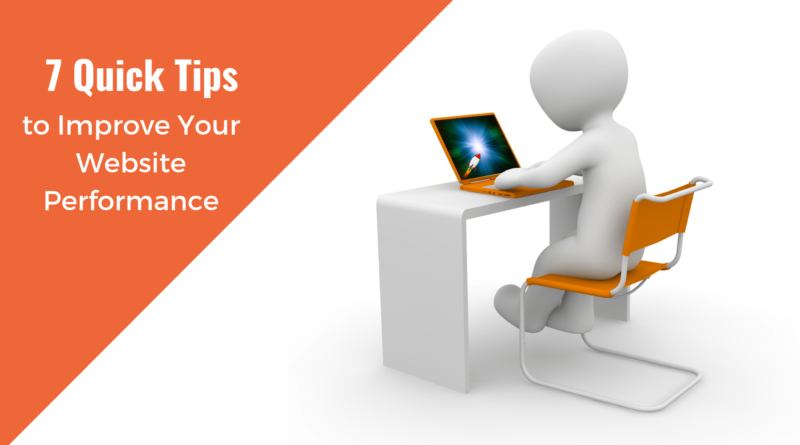7 Practical Tips to Improve Your Website Performance
In today’s digital age, website performance is paramount. There are many CMS platforms such as WordPress that offers customizable templates for your website.
Thus, it becomes easy to build website and get budget-friendly web hosting plans however the performance of website often gets decreased.
Moreover, they can wreak havoc on your search engine rankings since Google prioritizes fast-loading websites in its search results.
So, how can you optimize your website’s performance and keep your visitors happy? Here are seven practical tips:
1. Optimize Your Images:
Images often constitute the largest files on your website, which can drag down loading times. To resolve this, compress your images without sacrificing quality. Numerous online tools and software programs are available to assist with this task. By optimizing your images, you can significantly enhance your website’s speed and efficiency.
2. Trim Down HTTP Requests:
Each time a visitor loads your website, their browser sends separate HTTP requests for every file on the page. This can result in a substantial number of requests, especially if your site features numerous images, CSS files, and JavaScript resources. Combining files, minifying code, and using CSS sprites can help cut down the number of HTTP requests and boost loading speed.
3. Implement Caching:
Caching involves storing static copies of your website’s pages. This allows these pages to be delivered to visitors without the need for real-time generation. The result? Faster loading times, particularly for repeat visitors.
4. Select a Reliable Web Hosting Provider:
Your choice of web hosting provider can significantly influence your website’s performance. Look for a provider that offers robust server hardware and software, as well as dependable uptime, to ensure your website runs smoothly.
5. Keep Software Up to Date:
Outdated website software can harbor security vulnerabilities and performance glitches. Be diligent about updating your WordPress core, plugins, and themes to guarantee optimal performance and security.
Utilize Website Performance Testing Tools:
Tools like Google PageSpeed Insights and GTmetrix can be invaluable in pinpointing areas where you can enhance your website’s performance. They offer valuable insights and suggestions for improvement. While it’s important to save money by going with cheap cloud hosting, however you also need to ensure that the hosting provider is reliable.
Additionally, here are some extra tips to further enhance your website’s performance:
- Choose a Lightweight WordPress Theme: There are lightweight WordPress themes designed for speed and performance that can give your website an extra boost.
- Minimize Plugin Usage: While plugins can add functionality to your site, using too many can bog it down. Only employ plugins that are essential to your website’s functionality.
- Implement Code Minification: Code minification plugins can help shrink the size of your website’s CSS, JavaScript, and HTML files without compromising functionality.
- Enable Lazy Loading for Images: This technique delays the loading of images until they’re visible to the user, enhancing loading times, especially on pages with numerous images.
- Utilize a Database Optimizer Plugin: These plugins can optimize database queries and eliminate unused data, leading to improved database performance.
Now, let’s focus on improving your website’s performance on mobile devices, which is crucial given the prevalence of smartphones and tablets:
- Adopt a Responsive Web Design: Ensure your website looks and functions seamlessly across all devices, including mobile phones and tablets, by implementing responsive web design.
- Optimize Images for Mobile: Mobile devices have limitations such as smaller screens and less processing power. Optimize your images for mobile devices by reducing their size and employing mobile-friendly image formats like WebP.
- Choose a Mobile-Friendly WordPress Theme: Numerous WordPress themes are tailored for speed and performance on mobile devices. Select one that suits your needs.
- Limit Plugin Usage: As with desktop optimization, be mindful of the number of plugins you use on mobile. Stick to essential ones to maintain mobile performance.
- Implement Code Minification: Just as on desktop, code minification can help reduce file sizes without sacrificing functionality on mobile devices.
- Enable Lazy Loading for Mobile: Implementing lazy loading for images on mobile can further improve loading times and enhance mobile user experience.
By following these strategies, you can significantly enhance your website’s performance, ensuring a smoother user experience and better search engine rankings. Your website will be well-equipped to thrive in today’s digital landscape.
